Phonics practice Building Vocabulary Worksheets for Ages 4-7
6 filtered results
-
From - To
Enhance your child's literacy skills with our Phonics Practice Building Vocabulary Worksheets, designed for ages 4-7. These engaging worksheets help young learners develop phonemic awareness and build essential vocabulary, laying a strong foundation for reading success. Featuring captivating illustrations and interactive exercises, children will enjoy practicing letter sounds, blending phonemes, and recognizing sight words. The activities are tailored to maintain interest while promoting critical thinking and spelling abilities. Perfect for both classroom and at-home use, our worksheets make learning phonics fun and effective, empowering your child to excel in reading and language comprehension. Start nurturing their literacy journey today!
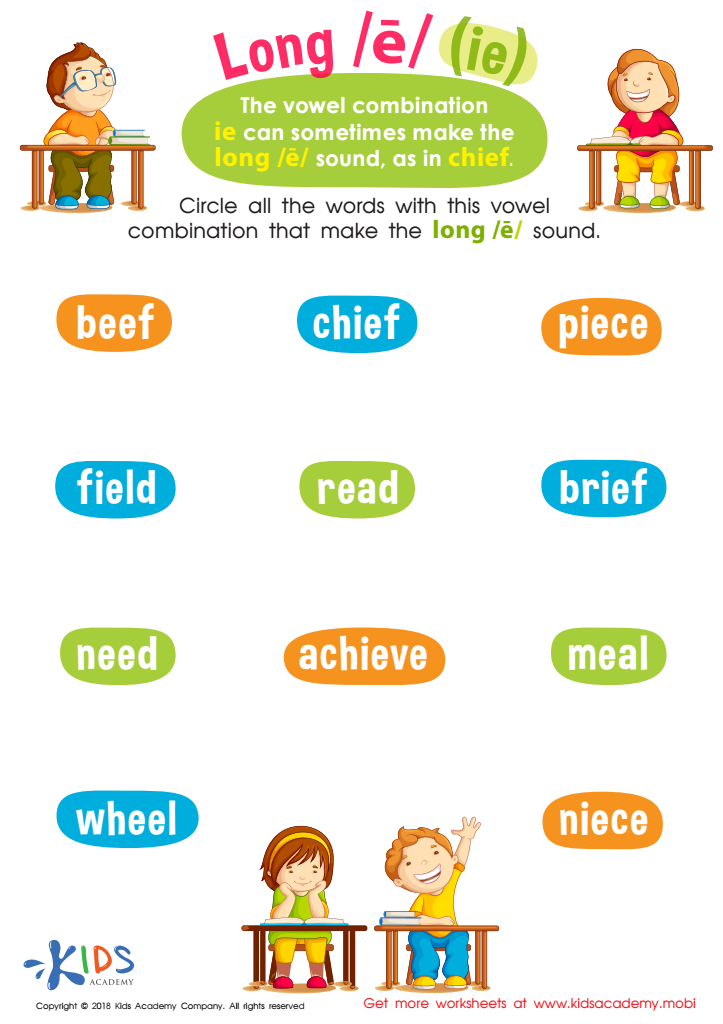

Reading: Long E and IE Worksheet


Short Vowel Eggs Worksheet
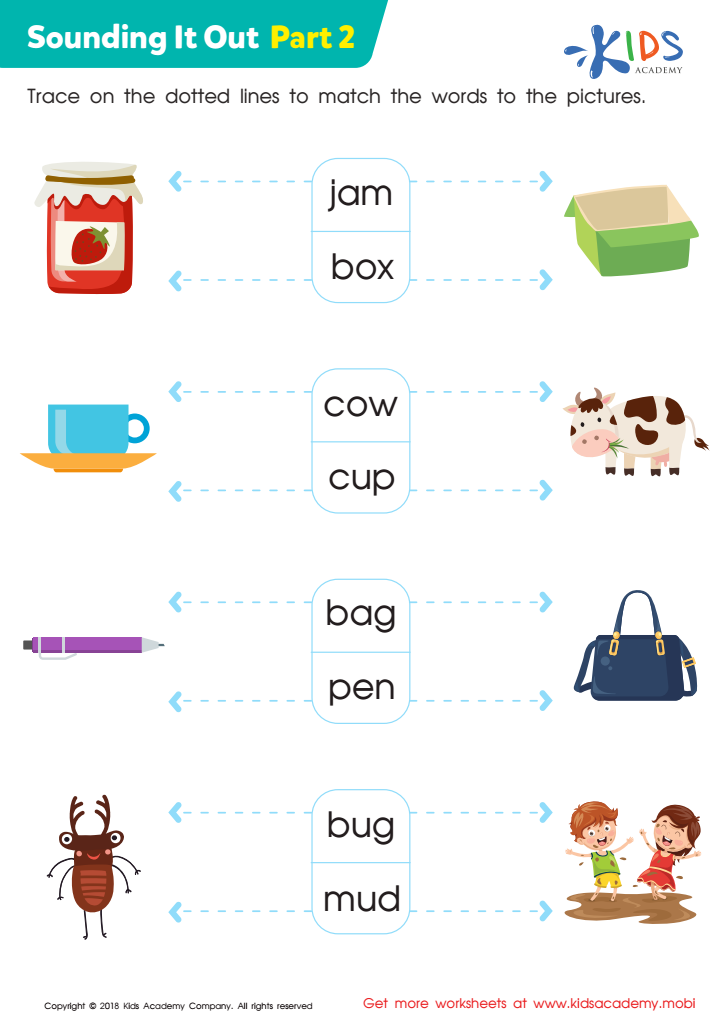

Sounding it Out: Part 2 Worksheet
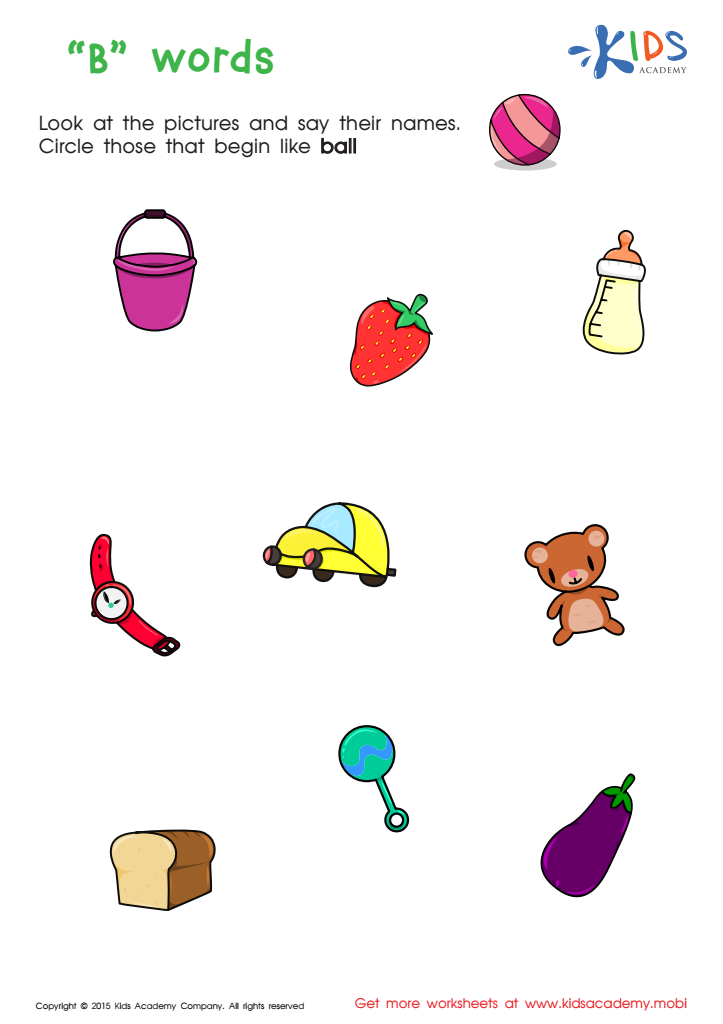

First Words Worksheet
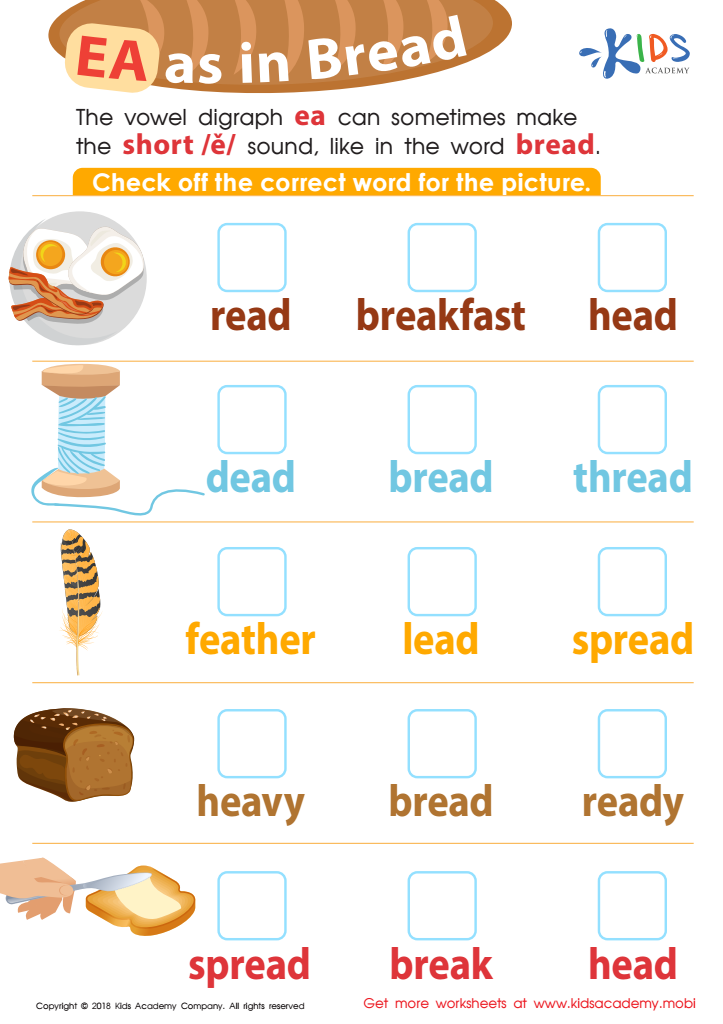

Reading: EA as in Bread Worksheet
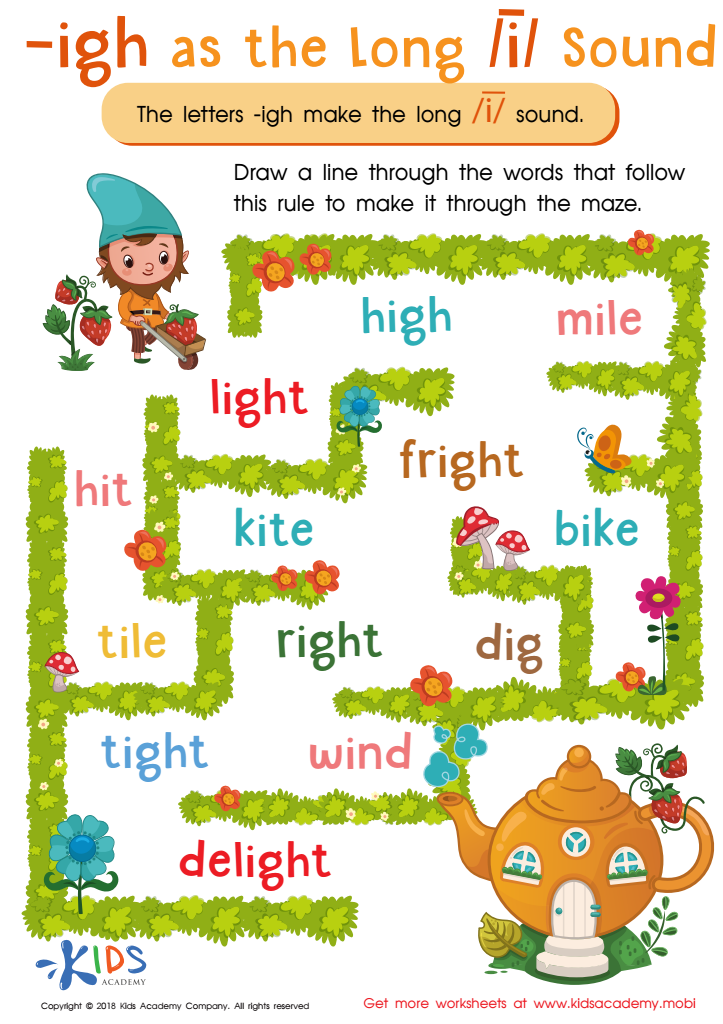

Reading: IGH as Long I Worksheet
Phonics practice and building vocabulary are crucial for children aged 4-7, as they form the foundation of reading and literacy skills. During this critical developmental period, children's brains are particularly receptive to language acquisition. Effective phonics instruction helps children understand the relationship between letters and sounds, enabling them to decode words independently. This skill encourages early reading experiences, fostering a lifelong love for books.
Furthermore, building vocabulary is equally important at this age, as it expands children’s communication abilities and comprehension skills. A rich vocabulary enhances their capacity to express emotions, thoughts, and ideas clearly. When children learn new words, they also start recognizing the context in which to use them, improving their understanding of stories and information.
Parents and teachers play a vital role in supporting this development. Engaging children in phonics activities and introducing them to a wide array of vocabulary can enhance their learning experiences and academic success. These skills are foundational not just for reading but for overall learning, influencing performance in subjects across the curriculum. By investing time in phonics and vocabulary development, parents and educators can empower children to become confident, skilled readers, setting them on the path to lifelong learning.

 Assign to My Students
Assign to My Students


















.jpg)











